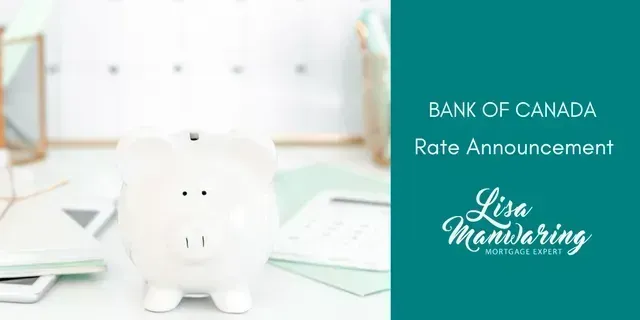Can I Give Someone The Downpayment to Buy My House?
Although it might not always be this straightforward, the question "Can I give someone the downpayment to buy my house?" presents itself in many different ways. And the answer to all of them is no, well... except in one circumstance, but we will get to that later. Here are a few scenarios played out.
"I am selling my house on ComFree and I have someone who is interested in purchasing my property, but they don't quite have the full downpayment, can I give them part of the downpayment to help them out? I REALLY need to sell my house! Does the bank really care where the downpayment comes from?"
Let's establish why the lender cares about where the downpayment comes from, there are 3 reasons.
Firstly by law, they have to. In order to prevent money laundering, lenders have to prove the source of the downpayment on the purchase of a home. Acceptable forms of downpayment are from own resources, borrowed (through an insured program called the FlexDown), or gifted from an immediate family member. To prove the funds are own resources, 90 days bank statements are required indicating the money has been in the account for 90 days or to show an accumulation of funds through payroll deposits.
Secondly, the lender cares about the source of the downpayment because it indicates the buyer is financially qualified to purchase the home. Obviously a downpayment from own resources is best, as it shows that the buyer has positive cash flow, is able to save money and manages their finances in a way that they will most likely make their mortgage payments on time. The bigger the downpayment the better (as far as the lender is concerned) because there is a direct correlation between how much money someone has as equity in a property to the likelihood they will/won't default on their mortgage. To break that down... the more skin you have in the game, the less likely you are to walk away.
Thirdly and most important to this scenario, the downpayment establishes the loan to value ratio. Now, the loan to value ratio or LTV is the percentage of the property's value compared to the mortgage amount. In Canada, a lender cannot lend more than 95% of a property's value, or said in another way they can't lend higher than a 95% LTV. This means that if someone is buying a home for $400k, the lender can lend $380k, and the buyer is responsible to come up with 5% or $20k in this situation.
So how does the source of the downpayment impact LTV?
Great question, and to answer this, we have to look at how a property's value is established. Although we could go into a lot more detail here, very simply put, something is worth what someone is willing to pay for it and what someone is willing to sell it for. Of course within reason, having no external factors coming into play and when you are dealing with real estate, it's usually compared to what people have agreed to in the past on similar properties. So combining our scenarios, if you are selling your house for $400k and you give the $20k downpayment to the buyer, the actual sale price (the amount you agreed to sell for, and the amount the buyer pays) is actually $380k not $400k. So to take the purchase contract in to the lender and request a mortgage for $380k would actually be a 100% LTV and financing will be declined because the minimum LTV in Canada is 95%.
Now, despite how people attempt to rationalize or manoeuvre wording and money, its all smoke and mirrors, if the buyer isn't coming up with the money for the downpayment independent of the seller, it impacts the LTV and financing will not be completed. Here are variations of this scenario played out in different ways.
"Can I increase the sale price of the property I'm selling and "gift" the downpayment to the buyer so they have a bigger downpayment and it looks more favourable to the lender?"
Nope, again, this is a trick to try and manipulate the LTV.
"If the buyer wants my house really badly, but doesn't have the full downpayment, can they borrow the money from somewhere and then we provide them with a cashback at closing to repay the debt?"
No. ANY cash back from the seller to the buyer when the purchase transaction closes is a no go. Just like on the front end of the purchase, any money refunded or given back on closing impacts the LTV and it would impact the mortgage lenders decision to lend.
"But what if the lender doesn't know about it?"
This is called fraud. Having conditions to the sale of a property that are not disclosed to the lender is fraud. There is no 2 ways about it.
"You mentioned at the start of this article that there is one way to give someone the downpayment to buy a house, tell me more!"
As mentioned, there are 3 acceptable sources for a downpayment, one of them being a gift from an immediate family member. So if you are selling your property to an immediate family member, you are able to gift the equity to them on the purchase contract. You would write that condition on the actual purchase contract, that the downpayment is coming by way of a gift. You would then complete a gift letter indicating that the downpayment is a true gift and has no schedule for repayment.
So there you have it. If you are selling a house to someone you are not directly related to, you are not able to give them the money for your downpayment. Alternatively, if you are buying a house from someone you are not directly related to, you are not able to take money from them for the downpayment. If anyone tells you otherwise, they are misinformed. And if anyone ever presents a way to "get around the rules" regardless of how simple it sounds, it's probably fraud.
If you have any questions about this or anything else mortgage related, I would love to talk with you!
Contact me anytime!
RECENT POSTS





